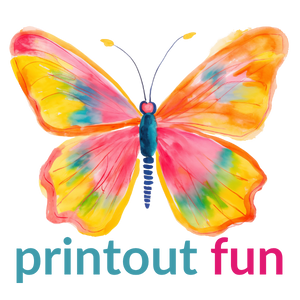Looking for a not-so-spooky way to sneak in some early math skills? These Halloween number recognition games are a playful and engaging way to help young learners practice identifying numerals 1-20. In addition, they’ll also be working on turn-taking, patience, and social interaction. Hot dog!
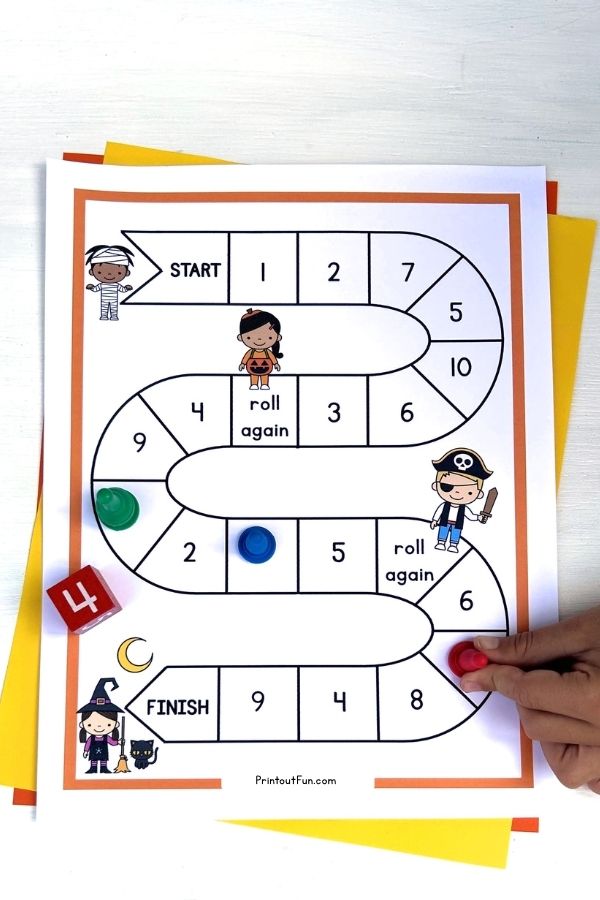
How to Set Up and Play the Halloween Number Recognition Game
This game is best used in a small group of 2-4 players. If you’re working with a larger class, just print out multiple copies so everyone can join in the fun.
Laminating the boards can make them last longer, especially if you plan on using them multiple times, but it’s completely optional. In fact, many teachers and parents simply print a new themed board as needed to keep things fresh and exciting.
To start playing, all of the students will place their game pieces on or near the space marked “START” Choosing who goes first can be just as entertaining as the game itself. You can roll to see who gets the highest number, pick names from a hat, or allow the youngest child to start.
Once turns begin, players take turns rolling a standard six-sided die and moving their token that many spaces. When they land on a number, they will call it out loud.
If you have non-verbal students, they can participate too! They can use their communication device or eye-gaze board to identify the matching number.
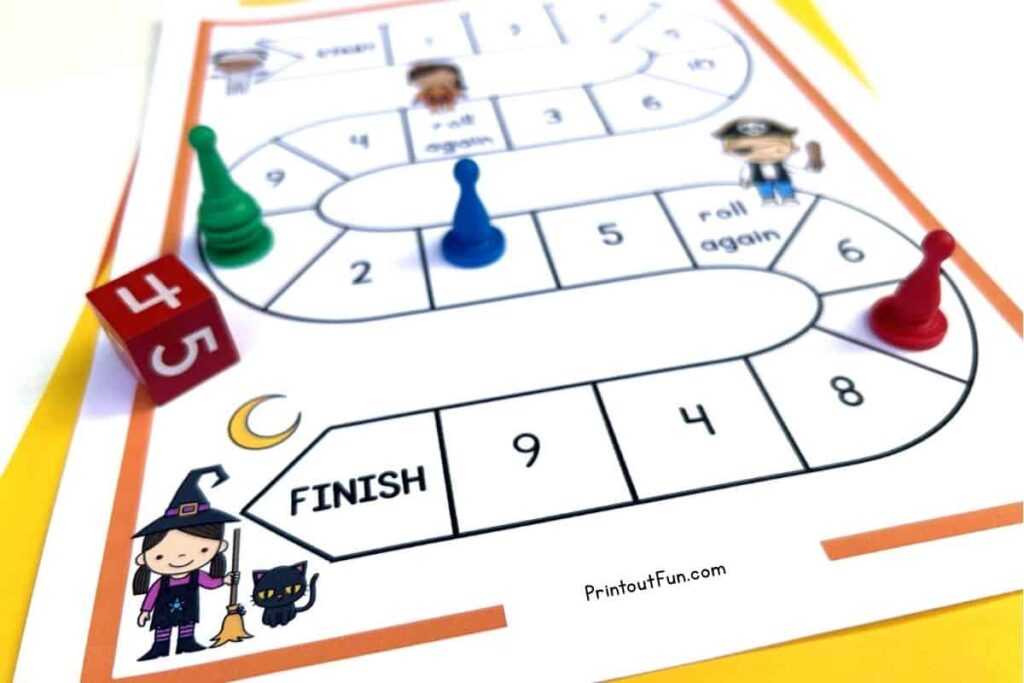
You can wrap up the game in different ways depending on your teaching goals. If you’re looking to boost a little friendly competition, declare the first player to reach the “FINISH” the winner.
If you want a more collaborative vibe, keep the game going until everyone finishes. For mixed-ability groups, this is a more inclusive approach.
What You’ll Need
(From here on out, there will be affiliate links throughout the article.)
- Cardstock
- Printable game boards (towards the bottom of this page)
- One game piece per student (these Halloween minis are perfect!)
- A regular six-sided die
- Laminator (optional)
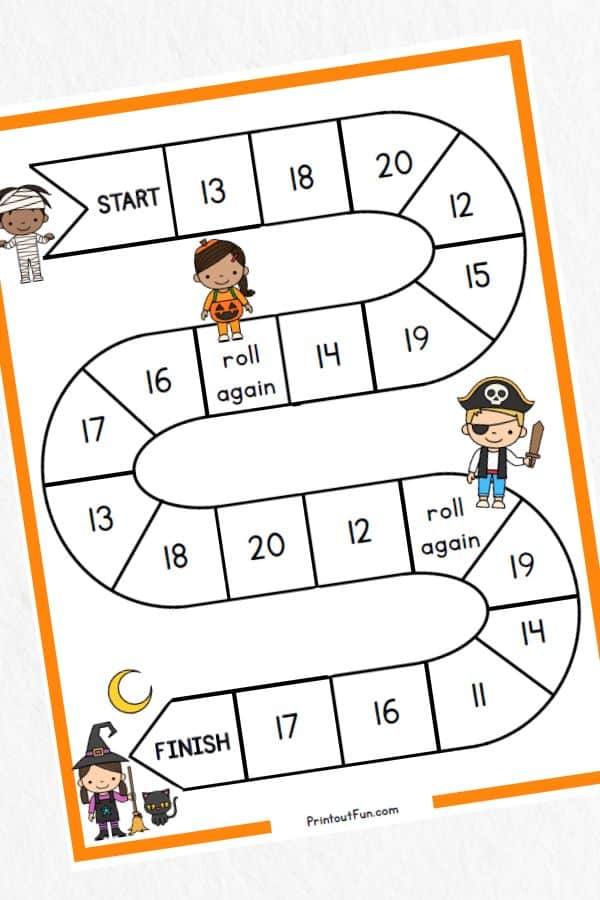
Making It Work for All Learners
The beauty of this Halloween printable is its built-in flexibility. You can choose a game board that features numbers 1–10, 11–20, or even 1–20, depending on your students’ needs. Meet them where they are to start and work up to more challenging game boards later on.
For kids with fine motor challenges, try attaching a bolster grip to the game pawns. You can even avoid the need for grasping altogether by using ring pawns instead.
And for your students who use alternative communication methods, be sure to check out these printable number cards that work great for felt boards, AAC devices, and more!
Whether you’re prepping a themed math center, setting up a festive homeschool lesson, or prepping some therapeutic fun, these Halloween number recognition games are a fantastic way to mix learning with holiday excitement!
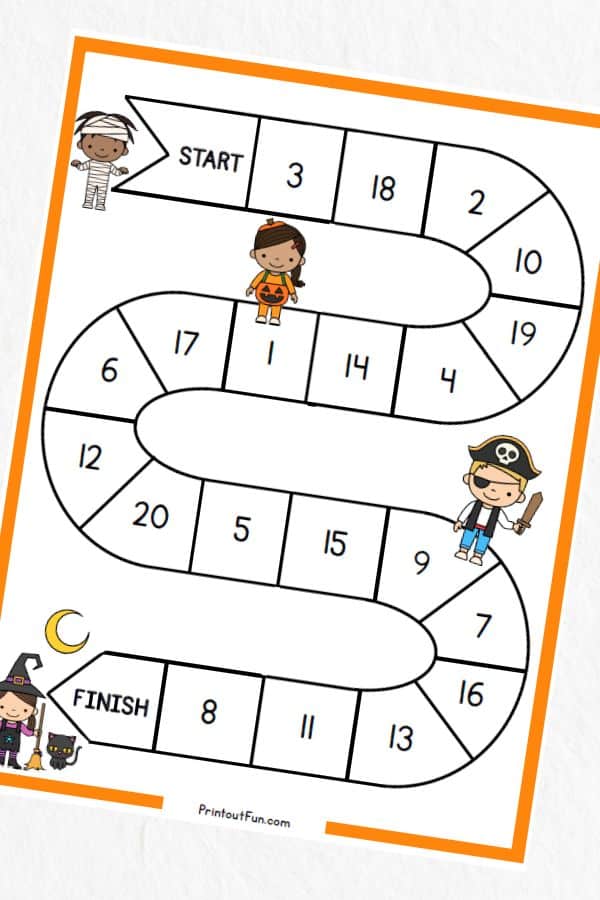
More Fun Math Activities Your Students Will Love
Activity 1
Activity 2


